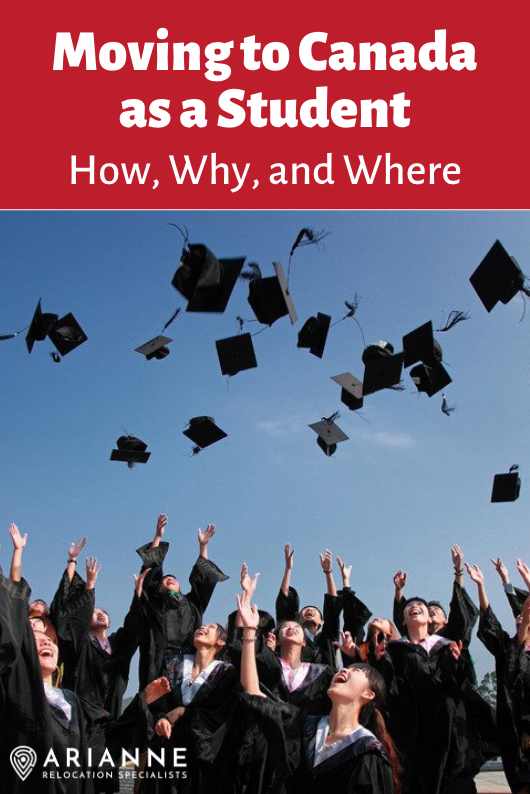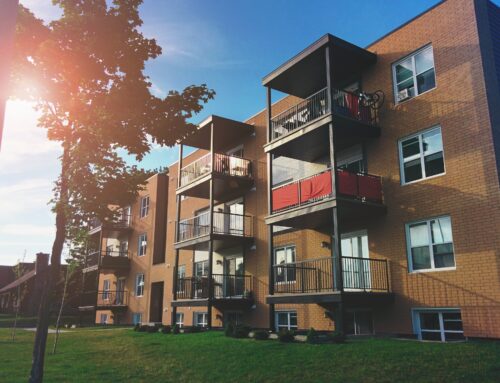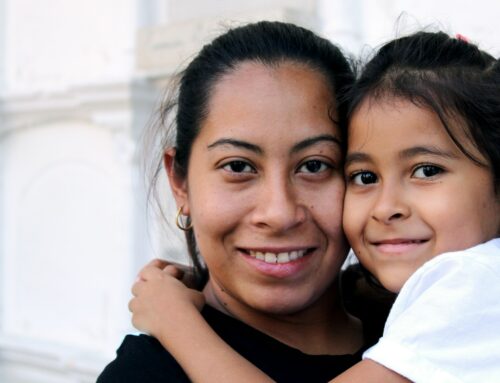If you’re thinking of moving to Canada as a student, it’s probably a brilliant idea. The international experience you can gain by studying abroad will bring you a lifetime of rewards. Among western nations, Canada has some of the most inviting immigration programs you will ever find. And as a student in Canada, will you enjoy many of the rights and benefits offered by this prosperous country. Finally, if you decide you would like to extend your time in Canada and pursue permanent residency, you will already have a great head start.
But before you pack your pencils and laptop and hop on a plane to Toronto, you will need to understand the immigration options and procedures. You will also want to consider which city you’d prefer to live in and which universities to apply to. You might discover that there are many advantages to living and studying in Canada. And depending on your academic and professional goals, you will probably find certain universities more desirable than others.
Canadian Student Visas and Immigration
How do I apply?
Before you can even get started with your immigration procedures, the first thing you need is an Offer of Admission. Once you are officially accepted and enrolled as a full-time student, you will have to demonstrate that you have the financial means to support yourself during your stay. You’ll also need to prove that you are in good health, and have a clean police record. You must also be at least 18 years old and possess a valid passport.
If you can meet those requirements, then you can apply for a Canadian Study Permit from your country of residence. The fee is $150. After your application has been accepted, you will receive a Letter of Introduction from the Canadian visa office. Keep this as a confirmation letter, and travel with it in your carry-on baggage when you come to Canada.
You can apply for the Study Permit online.
Upon arrival in Canada, you will go through customs and have your documents verified in the Canadian immigration office. At this point, an immigration officer will issue your Study Permit. Be sure to read over your Study Permit carefully. Make sure all the information is accurate and typed correctly. If you find any errors, ask the immigration officer to correct them before you leave the immigration office.
Citizens from certain countries must also apply for a Temporary Resident Visa (TRV). To understand the requirements for your country, you will need to contact your local Canadian authorities. You can also visit Citizenship and Immigration Canada for more details.
Should I get a work permit as well?
With a Study Permit, you will be permitted to work certain jobs on or off-campus on a part-time basis, in order to finance your studies. For most part-time jobs you will not need an additional work permit, but various restrictions do apply.
Can other family members come to Canada while I’m studying?
Your family can accompany you, provided they meet the TRV requirements.
Minor children (up to 18 years of age) attending primary and secondary school do not need their own Study Permit, provided their parents have a Study Permit or Work Permit that includes them. If their parents are only on a visitor’s visa, they will need a Study Permit from their country of last permanent residence. Children who are not minors must apply for a Study Permit of their own, even if they were previously included in their parents’ Work Permit or Study Permit.
Are there any exceptions that do not require a study permit?
In certain cases, a Study Permit is not required for studying in Canada. For example, you do not need a Study Permit if your course does not exceed six months and you come from a visa-exempted country.
Other exceptions include students who hold valid diplomatic visas in Canada, students studying in the country for fewer than six months, and permanent residents. However, students who qualify for one of these exceptions still may want to get a Study Permit in order to be eligible to work a full-time off-campus job.
Can I extend my stay after graduation?
Yes. You can extend your Study Permit, change it to a Work Permit, or apply for Permanent Residence from within Canada.
Any other requirements to be aware of?
If you are traveling through other countries while in transit to Canada on a student visa, you may need a separate visa to enter those countries. Be sure to obtain any necessary visas before your trip.
Benefits of Studying in Canada
Students come to Canada to study for a variety of compelling reasons. Whether you’re looking for a quality education or a better quality of life, you can get it all in Canada.
Quality of life
Like other immigrants, students are attracted by Canada’s reputation as a politically stable and economically prosperous nation. By and large, Canada has a very safe, healthy and happy society. Crime and unemployment are relatively low, and the quality of life is among the highest in world. The democratic government guarantees basic human rights and civil liberties to all its citizens. Like the American Bill of Rights, the Canadian Charter of Rights and Freedoms identifies four “fundamental freedoms”, namely freedom of conscience, freedom of religion, freedom of expression (free press and of other media of communication), and freedom of peaceful assembly and association. Also, the Canadians are famously kind, open and tolerant towards immigrants and minorities.
Furthermore, Canada’s geographic position in North America isolates the country from most international conflicts. Good relations with its neighbouring superpower, the USA, ensure that Canada maintains peace and prosperity. Finally, despite having a relatively low population of about 37 million—slightly lower than that of California— Canada is the second largest country on earth after Russian, in terms of area. And with an enormous treasury of natural resources, including some of the largest oil and gas reserves in the world, Canada is a truly rich nation.
High standards
Canada’s high standard of living extends equally into its standards of education. A degree from a Canadian university earns as much respect around the world as one from the United States or the United Kingdom. In the U.S. News and World Report 2019 ranking of global universities, Canada had seven schools in the top 200 and three made it into the top 50. The University of Toronto ranked #20, University of British Columbia made #29, and McGill University in Montreal came in at #43.
In addition to these world class universities, Canada also boasts an impressive network of public and private colleges and vocational schools. Whether you’re pursuing a bachelor’s degree or a PhD, or if you’re interested in continuing your education through professional or technical training, the opportunities in Canada are diverse, abundant, and top quality.
Affordability
The reasonable cost of a higher education is another major draw that lures international students to Canada. Among the English speaking countries of the U.S., the U.K. and Australia, none offers a less expensive undergraduate degree, on average, than Canada. Canadians pay roughly $6,000 CAD a year to attend university, while international students pay more like $14-16,000 CAD to pursue a degree in Canada. And even with the international student fees, many Americans are finding it less expensive to study up north than in their own home country.
It’s also important to look at the cost of living. After tuition is paid, students and their families still have to cover the cost of rent, groceries and incidentals. Cost of living can vary greatly between cities (see our article on the Cost of Living in Montreal vs Toronto), but on average, living is significantly cheaper in Canada than in the rest of the English speaking world.
Work opportunities
One great benefit of the Canadian Study Permit is that it also functions something like a work permit. In most cases, international students in Canada can work part-time jobs on or off campus without obtaining a work permit in addition to their study permit. In this sense, the Canadian study permits gives students a number of advantages. First of all, the chance to earn a little money during your time in school can be very helpful in offsetting the cost of getting an education. The life of a student is filled with unexpected expenses, so a little income can make a big difference.
Additionally, the possibility to gain work experience in Canada can open up a host of opportunities. If you choose to stay in Canada, your chances of finding work will be greatly improved if you already have some Canadian experience. You might even qualify for the Canadian Experience Class visa program if you’ve been working in a more highly skilled field. And if you end up returning to your native country, your resume will look all the stronger when can show that you have work in experience from Canada.
Job Opportunities
Besides the part-time jobs that are available to international students, a degree from a credited Canadian university will open up great opportunities around the world. A Canadian education can prepare you for a career in any number of competitive and high-paying professions. By building strong relationships with other leaders in your field, as well as advancing your language proficiency in English and/or French, you will gain a very favorable position in the global economy.
Path to immigration
Lastly, if you’ve ever dreamed of moving to Canada permanently, entering as a student might be the optimal way to get your foot in the door. Once you graduate, it’s a fairly straightforward process to extend your stay. You can try to get a work permit in order to continue working in Canada, or you can apply for permanent residency. Either way, you will have a great advantage over other applicants from outside the country who have no work or study experience. Also, with a Canadian degree in hand, you will have a great head start over other immigrants when it comes to finding gainful employment.
An Overview of Canadian Universities
For a country with a population less than one tenth of the U.S., Canada has an impressive number of highly ranked universities. When you apply to schools in Canada, you will want to consider their international reputations. You should also look at their academic programs and specializations and see how they align with your goals and interests. Then you will want to think about their locations and which part of Canada you’d prefer to be in. For example, you might prefer Vancouver on the west coast, or Montreal in French-speaking Quebec, or Toronto at the heart of Canadian culture and industry. See our article on Where to live when moving to Canada to learn more.
There are almost 100 accredited and federally regulated universities in Canada, offering bachelor’s degrees, master’s degrees and doctoral degrees. The vast majority are public institutions, but there are a handful of private universities, most of which have some religious affiliation.
In addition to these universities, Canada has hundreds of smaller colleges and vocational schools, which award diplomas rather than degrees. Most of these specialize in pre-university education and specific professional and technical training. Among the colleges, there’s a greater mix of public and private schools.
The following list is by no means exhaustive. It includes all the major universities in Canada’s biggest cities.
Universities in Toronto
University of Toronto: Founded in 1827 as King’s College, the University of Toronto is Canada’s oldest and largest institute of higher learning. The university is comprised of 11 colleges with a wide variety of specializations, and stands at the forefront of many fields of research, including insulin, stem cells, and literary theory. In 2019, US News and World Report ranked University of Toronto the best school in Canada, and #20 on the list of best global universities.
York University: The third largest university in Canada, York has a student body of more than 50,000. With 11 collegiate departments, the university offers degrees in law, business, engineering, environmental science, cinema, and more. The university held its first classes in 1960, and now has several campuses throughout the city.
Ryerson University: With an emphasis on business and engineering, Ryerson’s campus is located in the heart of downtown Toronto, around one of the city’s busiest intersections. The “DMZ” (Digital Media Zone) at Ryerson is ranked the number one university-based business incubator program in North America.
University of Guelph-Humber: Established in 2002, Guelph-Humber is a collaboration between two other Ontario-based schools. Today they offer four-year degrees in seven different concentrations, as well as a Master of Fine Arts program.
OCAD University: Formerly the Ontario College of Art and Design, established in 1876, OCAD achieved university status in 2002, and continues to be Canada’s oldest degree-granting institute for art and design.
Tyndale University College and Seminary: Originally founded in 1894 as a small Bible training school, Tyndale now offers Bachelor’s degrees in humanities, social sciences and business, and also advanced degrees in religion, theology and divinity, primarily in the Protestant Evangelical tradition.
Universities in Montreal
McGill University: One of Canada’s oldest universities, established in 1821, McGill’s main campus is located in downtown Montreal. This public research university now has two campuses on the island of Montreal, serving more than 40,000 students with English as the primary language. McGill offers degrees and diplomas in more than 300 subjects, including advanced degrees in law and medicine. With some of the highest standards of any Canadian university, the school is ranked 33 in the world and number 2 in Canada. McGill medical school is consistently ranked the best in the country. Full time students from Quebec pay about $4,300 a year to attend McGill. Canadian students from other provinces pay about $9,500 a year, and international students pay between $22,000 and $42,000 in annual tuition fees.
Concordia University: One of only two universities in Montreal (and three in Quebec) where English is the primary language of instruction, Concordia has two campuses within the city, and more than 45,000 graduate and undergraduate students. The young, public university, established in 1974, offers degrees in over 300 undergraduate and more than 100 graduate areas of study. Concordia enjoys a very high ranking among universities, especially for the John Molson School of Business. Local students pay around $2,300 to attend Concordia and Canadians from outside of Quebec pay about $7,200.
University of Montreal: Ranked number three among Canadian institutes of higher education, this French-speaking public and secular university is located on the north-facing slope of Mount Royal in Montreal. The school offers more than 650 undergraduate diplomas and degrees, and PhDs in over 70 areas of study. Université de Montréal has about 45,000 graduate and undergraduate students from around Canada in the world. The medical school has an especially high reputation.
University of Quebec: Based in Quebec City, with 10 independent universities across Canada, the University of Quebec at Montreal (UQAM) is the largest school in this trans-Canadian network. With a student population of about 43,000, the University of Quebec provides instruction in French, offering graduate and undergraduate degrees in arts, education, communication, political science and law, science, social science and management. In 2005, UQAM annexed the Télé-université, a public, French-speaking distance learning school, bringing the total number of students to more than 60,000, making UQAM the largest French speaking university in the world.
University of Sherbrooke: Established in 1954 as a French-speaking, Roman Catholic, public university, the University of Sherbrooke now has five campuses serving roughly 40,000 students in and around Quebec, but primarily in the Montreal suburbs of Sherbrooke and Longueuil. The school has an excellent reputation and offers 46 undergraduate, 48 master’s and 27 doctoral programs.
Universities in Vancouver
University of British Columbia: Internationally recognized as a top-tier university, U of BC usually ranks second or third in Canada, alongside the University of Toronto and McGill University in Montreal. More than 60,000 students now attend the university, which was established in 1908. The school excels in all areas of academics, including the arts and sciences, business, and sustainable architecture.
Simon Fraser University: Established in 1965, Simon Fraser was quick to become a top ranked institution in Canada with more than 100,000 alumni. The university is strong in business, communication, arts and environmental science.
Capilano University: Based in North Vancouver, this smaller school graduated from college to university in 2008. Today it has about 8,500 enrolled students. Special academic programs include global stewardship and British Columbian studies.
Emily Carr University of Art and Design: British Columbia’s first university to specialize in the visual and performing arts, Emily Carr opened in 1925. But it did not adopt its current name until 1978. Today the small, public school has fewer than 2,000 students.
University of the Fraser Valley: Fraser Valley opened in 1974 as a small vocational college. In 1988 it became a degree-granting university, and today the school has about 15,000 enrolled students. Liberal arts and applied technical studies make up the largest departments.
Kwantlen Polytechnic University: This polytechnic university offers undergraduate and vocational education, providing bachelor’s degrees, associate degrees, diplomas, certificates, apprenticeships, and citations in a great range of programs. KPU focuses on technical subjects and vocational training in areas like engineering, accountancy, business administration, nursing, medicine, architecture, and criminology. The university has five campuses throughout British Columbia and about 20,000 students.
Trinity Western University: Founded in 1962, this private, Christian university emphasizes the liberal arts. The small school has only about 4,000 students, and may be the most expensive university in all of Canada.
University Canada West: This private, for-profit university opened in 2005. UCW offers undergraduate and graduate degrees in business administration.
Universities in Ottawa
The University of Ottawa: The University of Ottawa holds the distinction of being the largest bilingual French and English university in the world. The campus is located in the safe and central Sandy Hill neighborhood, adjacent to the Rideau Canal. Students can study in French, English or both languages. The university offers more than 400 unique programs of study, in more than 100 disciplines and there are options to study in the classroom, online or both. The University of Ottawa offers modern facilities and technology, as well as a world-class library and museum, study abroad options, and campus housing. This large university is consistently ranked as one of the world’s best. To learn more, check out our specific article on UOttawa.
Carleton University: A favorite of the Ottawa Universities, Carleton University is smaller than the University of Ottawa, but it still has lots to offer. Here, you can choose from 65 academic programs across a wide range of disciplines. The university earns particular notice for its strength in the engineering, industrial design, humanities, international business and Faculty of Public Affairs. Student life is rich and includes unions, athletics, clubs, fraternities and sororities and arts and media outlets. Studies at Carleton University are conducted in English.
Saint Paul University: Saint Paul University is a bilingual Christian University located on Main Street in Ottawa. Its four faculties include Human Sciences, Philosophy, Theology and Canada Law, and programs in 19 disciplines range from the bachelors to doctoral level. This university has a reputation for small class sizes, personalized service, and a diverse and international student population. In addition to academics, students enjoy support and guidance, symposiums, conferences, workshops, a student residence, and a wonderful library.
Universities in Edmonton
University of Alberta: The preeminent university in the city of Edmonton, U of A has campuses throughout the province. It is recognized as a comprehensive academic and research university and has nearly 40,000 students. The school has a diverse array of programs and faculty, and is home to the Canadian Institute of Ukrainian studies.
MacEwan University: Offering undergraduate programs in fine arts and communications, health and community studies, liberal arts and sciences, physical education, nursing, and business. The university has close to 20,000 students.
The King’s University: A private, Christian university offering undergraduate education in arts, humanities, music, social sciences, natural sciences and commerce/management. The small school opened in 1979 and has fewer than 1,000 students.
Concordia University of Edmonton: Formerly a private, Christian college, Concordia (not to be confused with Concordia University in Montreal) became a university in 1995 and went secular in 2015. The school now receives some public funding in combination with private donations and tuition fees. The small university offers undergraduate and graduate degrees in arts, music, education, business and other fields of study.
Universities in Calgary
University of Calgary: With over 30,000 students, Calgary’s largest university provides undergraduate and graduate degrees in a great variety of subjects. U of C is also one of Canada’s top research universities, will specializations in natural resource engineering, nursing and veterinary medicine. Students enjoy access to eight libraries, two art galleries, Archives and Special Collections, the University of Calgary Copyright Office, Research Data Centre and the University of Calgary Press.
Ambrose University: A private Christian liberal arts university with about 1,000 students.
Alberta University of the Arts: Formerly Alberta College of Art + Design, prior to 2019. This is the province’s leading public university for the arts. Still small, with about 1,200 students, AUArts offers undergraduate degrees through four schools: Craft + Emerging Media, Visual Arts, Communication Design, and Critical + Creative Studies.
University of Lethbridge: A publicly funded, comprehensive academic and research university with a liberal education tradition, U of L opened in 1967. Today they have an enrollment of about 9,000 graduate and undergraduate students.
Further Reading
To learn more about living and studying in the great land of Canada, please check out some of our other articles.
- Where to live when moving to Canada
- Universities of Toronto
- Universities of Montreal
- Ottawa Colleges and Universities
- A Guide to International Schools in Canada
- International Schools in Toronto
- Moving to Canada and finding a job
And if you need any additional assistance getting settled, ARIANNE Relocation has been helping students, families and professionals move to Canada for more than 20 years. We have a unique line of products and services to help save you time and money and make your relocation a happy success story.
PHOTO CREDIT: Priscilla Du Preez (Unsplash)










Leave A Comment